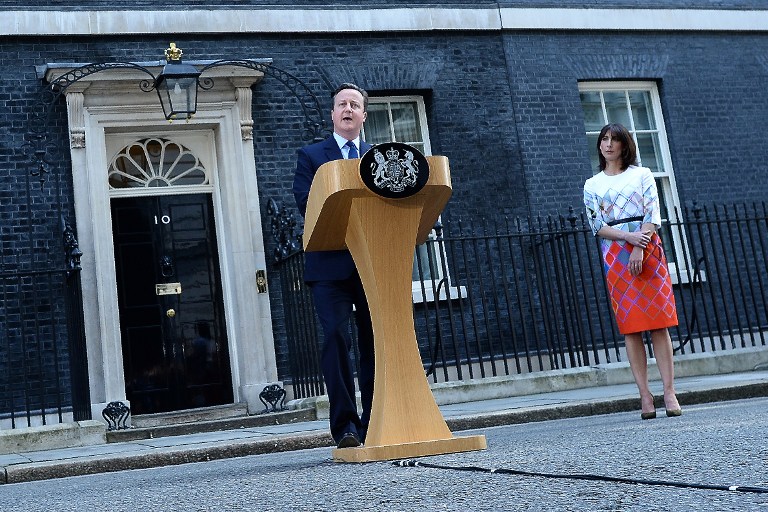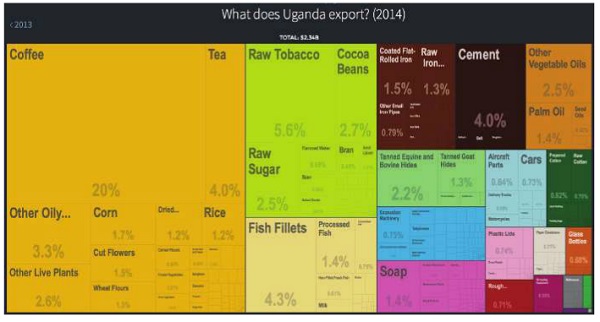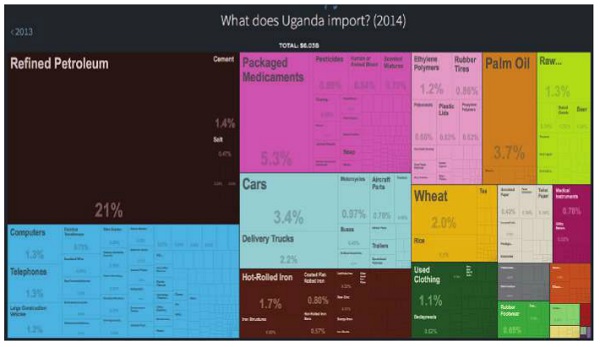A view from the Economic Policy Research Centre Makerere

On June 23, the British voted in a referendum to exit the European Union. The referendum was predictably surrounded by discussions of what a British exit- Brexit- would mean for the people and its social, political and economic impact. Of particular interest is the discussion around the possible impact of ‘Brexit’ on developing and emerging markets. It is from this that a debate developed around whether or not Africa should be happy about `Brexit’, writes Anita Ntale.
The ongoing ‘Brexit for Africa’ debate revolves around three main issues; prejudicial migration terms and policies which have to favour EU citizens over non-EU migrants, the EU’s distortionary Common Agricultural Policy (CAP) and the prospect of Britain entering international trade agreements independent of the EU.
Immigration
Immigration has always been a prominent feature of political discourse in Britain and, in the wake of the current EU migrant crisis; it took centre stage in the national debate on ‘Brexit’. Over the last decade or so, Britain has issued more stringent immigration policies for non-EU migrants because of commitments made to the EU regarding the free movement of labour.
The current immigration policy, therefore, discriminates against Commonwealth citizens in favour of EU migrants. Proponents of ‘Brexit’ for Africa argue that this could be reversed to favour Commonwealth nation like Uganda if Britain left the EU. However, with many developed countries tightening up on immigration, there is little assurance that a British exit from the EU would result in fairer policies towards African or Commonwealth countries which are, mainly, former colonies of Britain.
This has been well illustrated by the new UK Home Office Policy for the indefinite settlement of non-EU skilled workers. In this policy, the earnings threshold that would qualify an individual for indefinite ‘leave to remain’ has been raised to 35,000 GBP. This ultimately means that ‘Brexit’ is highly unlikely to result in more reasonable migration towards African migrants.
The Common Agricultural Policy (CAP)
The second issue in the ‘Brexit for Africa’ debate is the EU’s Common Agricultural Policy (CAP) which provides subsidies to EU farmers. This results in a competitive disadvantage for African farmers and their agricultural produce. Some of the agricultural exports that are covered by the CAP notably include beef exports, cereals, fruit and sugar.
The resultant obstacle to competition is exacerbated by the fact that Agriculture supports the livelihoods of over 70% of the African population. Even though recent reforms of the CAP have reduced overproduction and dumping in developing economies, it is still particularly difficult for African farmers to compete in European markets. To this end Britain has long been one of the more vocal critics and opponents of the EU’s CAP, decrying the effect of the subsidies on agriculture-dependent developing economies.
Will the British exit result in better CAP conditions for African countries? Probably not: Without the influence of Britain in the EU, evolution of the CAP in a direction that is favourable to African economies becomes even more improbable. More importantly, the CAP would continue to exist after ‘Brexit’ meaning that the status quo is likely to persist.


Ability to enter into trade agreements
The final issue in the ‘Brexit for Africa’ debate is centred on the ability of Britain to enter into international trade agreements outside the EU. The argument here is that outside of the EU, Britain will be able to have better trade agreements with Africa; agreements that may perhaps undo some of the damage caused by the CAP. However fundamental changes in the global trade landscape and ideology render this argument untenable.
The Lome Convention that started in the 1970’s as colonialism came to a close granted non-reciprocal trade preferences to African, the Caribbean, and the Pacific (ACP) nations. These tariff free import quotas covered agricultural and mineral materials. Strong protest from the USA coupled with the emergence of the World Trade Organisation (WTO) and the Single Market ushered in a change of rules resulting in the outlawing of discrimination between producers based on status.
With both Britain and the EU entering into Free trade agreements with other regions and countries, the result has been a reduction of preferential treatment for African countries.
For Britain however, this turn-away preceded their joining of the EU, and other EU countries have often been cited as having better trade engagements with Commonwealth countries. With the British out of the EU, Africa may actually find herself behind the likes of India and China in regard to EU-free UK trade partnerships. The EU is currently the world’s largest trading bloc accounting for up to 20 percent of global GDP.
There is little certainty that on its own, Britain can command the same kind of negotiating and bargaining power. In addition, if ‘Brexit’ were to be followed by the exit of other disgruntled countries, African economies would probably struggle to find a foothold in a highly fragmented market. It is, therefore, arguable that ‘Brexit’ could in fact lead to better trade relations for Africa.


Regional integration
In the wake of Brexit, there is a lesson in there for the East African Community and the other regional economic communities. The EAC has been growing as a trading bloc, and has recently welcomed South Sudan into the fold. However, on the whole, African integration has been less extensive than European integration and has led to less than spectacular economic performance.
In the past decade or so, regional integration has been at the forefront of African economic development and any progress made on that account has been internationally applauded. With so many linkages being formed across Africa, what kind of precedent does Brexit set? It begs the question of whether or not integration is better for economies; and what is needed for integrated economies to function.
African regional integration has got the advantage of looking at the EU and avoiding the same mistakes. It is clear that with so many moving pieces to consider, at best the fallout from Brexit is uncertain.
If anything, Africa and other emerging markets are most likely to suffer from the ensuing effects of uncertainty. With most of Sub-Saharan Africa reeling from falling oil prices, China’s slowdown, and falling commodity prices, Kenya’s central bank warns that the 2013 volatility brought about by changing US monetary policy could be ‘child’s play’ in comparison to the potential ramifications of ‘Brexit’.
A London-based Ugandan by the name Sam Akaki through his organisation, Democratic Institution for Poverty Reduction in Africa, made a plea in the Guardian newspaper urging African-Britons to vote in favour of ‘Brexit’.
In spite of the merits of his argument there really is no indication that ‘Brexit’ will lead to ‘equitable trading agreements with the UK’ or to better migration policies for African migrants. Overall, there really doesn’t seem to be much in Brexit for Africa because of the simple reason that with or without Brexit the conditions stifling African trade and development will continue to exist.
*****
Anita Ntale is a Research Analyst at the Economic Policy Research Centre (EPRC) at Makerere University in Kampala
 The Independent Uganda: You get the Truth we Pay the Price
The Independent Uganda: You get the Truth we Pay the Price


